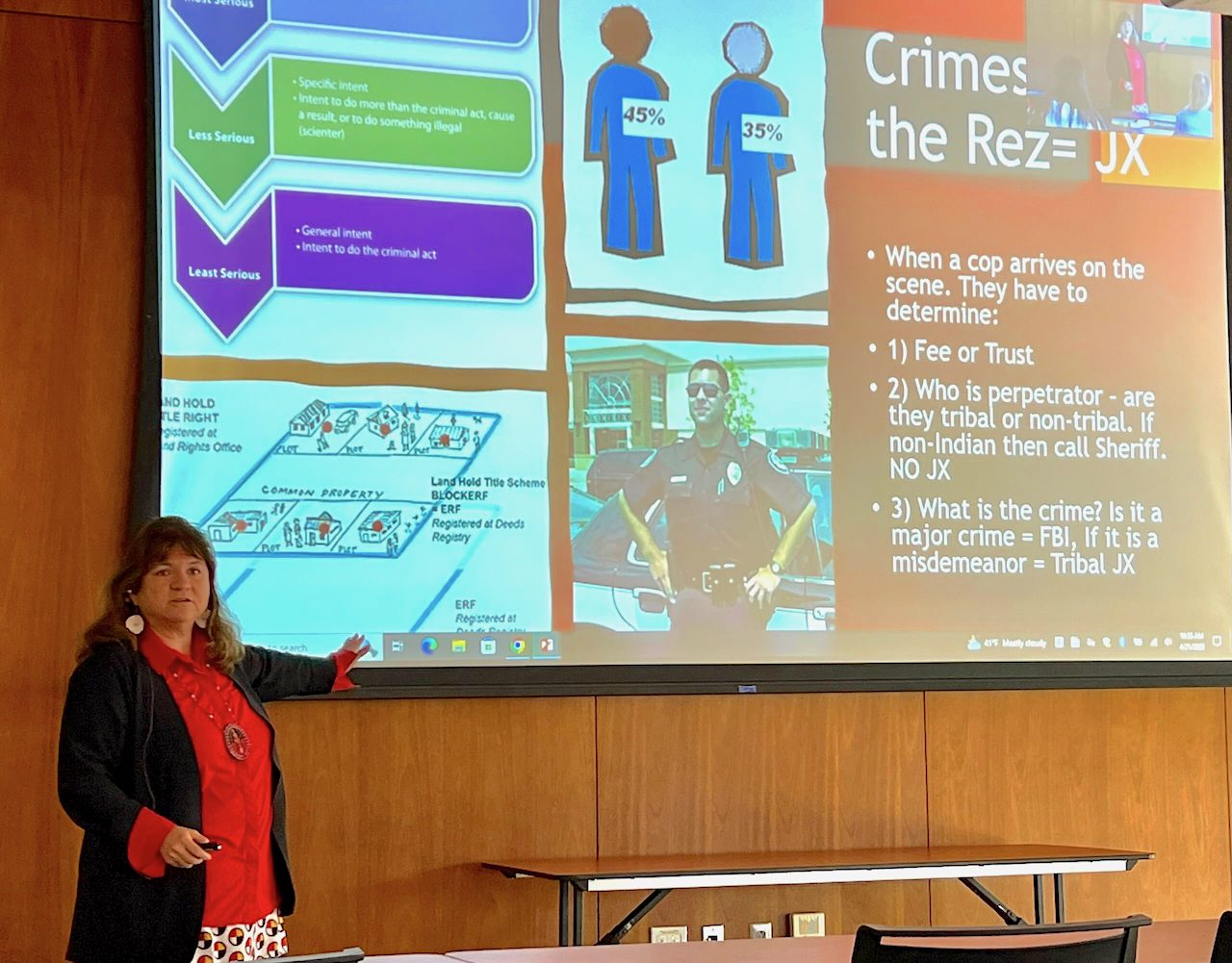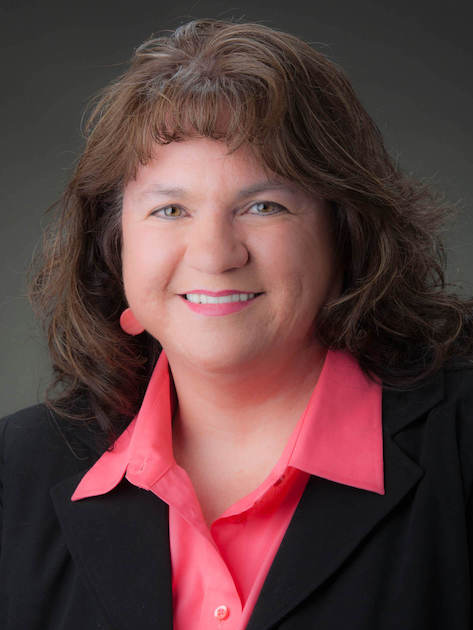Amplifying Indigenous Voices
PEER EXCHANGE: April 27, 2023, 8:30AM - 3:00PM PT [CLOSED]
Margo Hill’s presentation of "Amplifying Indigenous Voices” was a highlight of this year’s Western NLTAPA Meeting & Tribal Peer Exchange, drawing attention to several key transportation issues that tribal communities face in the state of Washington and elsewhere around the country.
In her address, Dr Hill noted that, on the Spokane Indian Reservation where she grew up, basic medical service providers like podiatrists and optometrists are not available and tribal members are often forced to leave the reservation to seek care, an effort often dependent upon the availability of a tribal retiree to shuttle community members to the large metropolitan areas of Washington. This lack of public transportation infrastructure can place a tremendous and unfair burden on a community’s health, economic opportunity, and overall quality of life.
Also presented was the national and historical epidemic of violence that is now commonly known as “Missing & Murdered Indigenous Women (MMIW)”, as within the U.S. Native American women are more than twice as likely to experience violence than any other demographic and one in three indigenous women will be sexually assaulted during her life. Human trafficking is also of grave concern, as indigenous women are especially at risk of victimization due to a lack of or access to safe transportation and/or the resources that reliable transportation services provide.
To raise awareness around these issues, Hill works with her university students to map MMIW victimizations relative to the mobility patterns of indigenous women, has organized an MMIW National Day of Awareness, written and coauthored numerous articles on the subject (including a TRB cover story), helped restore funding for an Eastern Washington tribal liaison to investigate major crimes and disappearances on reservations, and produced a public service announcement.
She recently posted an April 21st, 2023, presentation on MMIW, human trafficking, and indigenous mobility.
Dr Hill also highlighted key environmental concerns that affect tribes. “We won the United States Supreme Court culvert case because salmon need access to rivers and tributaries. When I was the attorney, we applied for treatment as a state under the Clean Water Act for high water quality standards.” said Hill. “Guess what? Good, clean water is good for all of our communities!”
Today, Washington tribes call attention to the toxic tire dust gathering in salmon-rich streams, and indigenous communities across the country are working with the Tribal Transit Program (TTP) to introduce zero-emission vehicles into their communities at a faster rate than several of the largest metropolitan areas in the United States.
Overall, Dr Hill’s presentation underscored the need for tribal voices to be present in conversations around transportation needs and assistance. Transportation issues that disproportionately affect tribal communities need to be a part of the broader conversations around infrastructure, services, and funding of any region or municipality.

This Event is Closed
Margo Hill, JD, MURP
An urban planning professor at Eastern Washington University and expert in federal Indian law, Dr Hill grew up on the Spokane Indian Reservation and is a key voice in elevating the conversation around tribal transportation issues.
She is Associate Director of the Small, Urban, Rural, & Tribal Center on Mobility (SURTCOM) and has served as a Spokane Tribal Attorney for over 10 years and as a Coeur d’Alene Tribal Court Judge.
